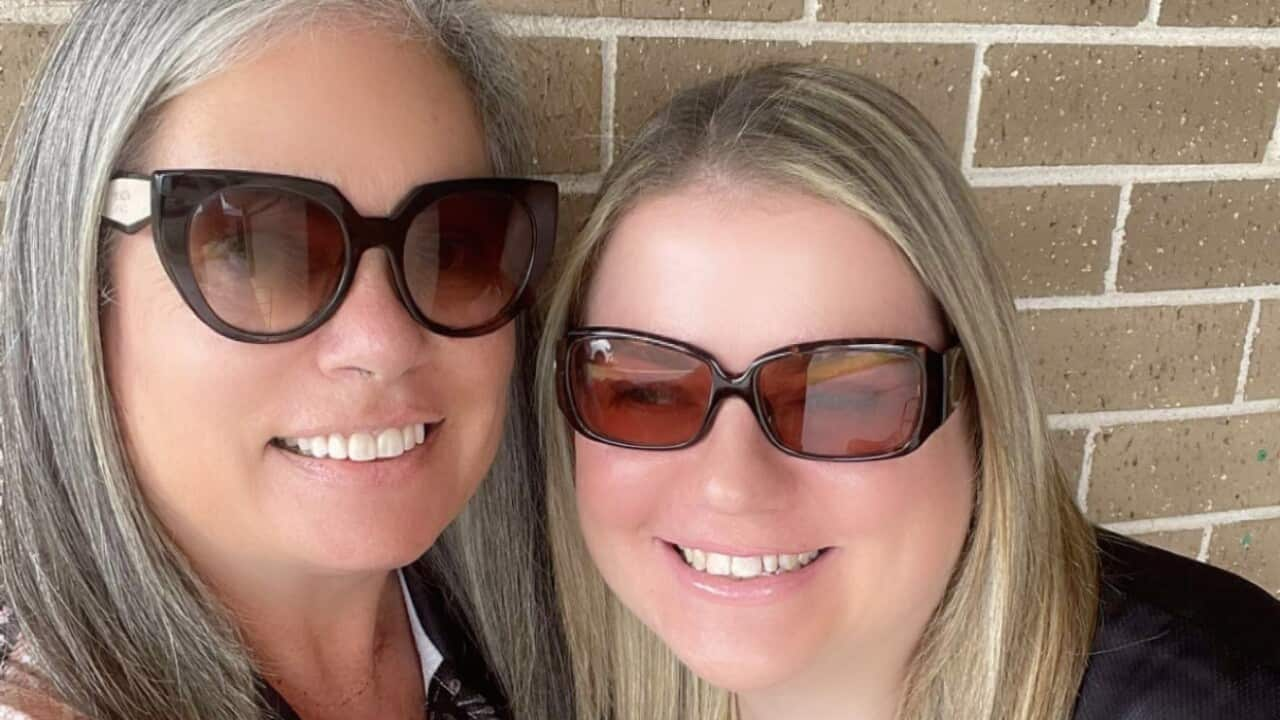When Darug woman Samantha Alexander is admitted by the NSW Supreme Court, she will become the first Aboriginal lawyer who is also blind.
Ms Alexander has just completed her law degree online with Charles Darwin University.
And she has a message: find the silver lining.
“Like I say now, what a time to be blind, look at all this technology we’ve got,” she said.
“Imagine doing what I just did in Ray Charles’ era – now that would have been hard yakka.”
Ms Alexander has a long-held interest in helping people.
When she was doing her first degree in criminology, she convinced NSW Corrections to give her a job – and she powered through any barrier that came her way, including navigating transport and a system not set up for the vision-impaired.
And that was all during the period when she was adjusting to losing her sight due to cone-rod dystrophy, a degenerative eye condition.
“As a proud Aboriginal woman and a person who is completely blind, I stand as living proof that no barrier – whether societal or personal – can extinguish the fire of determination,” Ms Alexander, who also earned a Master’s degree in forensic psychology, said.
Ms Alexander, who was previously working at a Community Legal Centre for a number of years, is interested in criminal law, human rights, and wills and estates.
“Particularly wills for Blackfellas, because there’s a misconception that you only need a will if you’ve got property or financial means but an artwork that’s been given down from generation to generation is still equally as significant,” she said.
“So I just feel like wills are very important, because if you don’t outline your wishes, you don’t know what’s going to happen post your departure.”
Working in the court system, Ms Alexander is always searching for ways to put clients at ease – and to demystify what is often an intimidating and frightening process.
“I would have a young Aboriginal fella say to me, ‘I can’t do that, I can’t read or write’ and I would say to him, ‘Listen, yeah, I can’t read or write on that piece of paper either so I’m going to find an alternative method,’” she said.
“They might be dyslexic or something, but there’s always other means around doing that sort of stuff, that innovation and that level of being resourceful.”
With her easygoing manner and genuine authenticity, Ms Alexander likes to make connections with clients.
“My childhood wasn’t glossy at all, but when you’ve had all those setbacks, you can use your pain as a platform to leverage towards success, make it a driving force behind why you can do it, because everyone expects you not to, so prove them wrong,” she said.
“When I was working for Corrective Services I had a cane that they knew I was blind, and we would have a giggle about it, because I’d just make a joke.
“But the idea was to build rapport very quickly because they were about to go into court …
“In the court system, they’re not getting that, there’s an imbalance in power, so I’ll just give them the power and go ‘Look, you’re the one that can see, you’re in control here.’”
Ms Alexander believes education is a powerful tool for Aboriginal people – and also an act of reclamation and strength.
“Every step in my academic journey has been driven by a vision far greater than myself: to advocate for justice, inspire resilience, and empower others to rise above adversity,” she said.
“To my community, I say this: dream boldly, work relentlessly, and believe deeply in your ability to make change.
“We are the custodians of incredible strength and resilience, let us carry that into every space we step into, transforming it for the better.
“Our stories matter, our voices matter and our futures are limitless.”
During her academic journey Ms Alexander faced challenges – sometimes they seemed so hard she’d think about giving up, but each hurdle strengthened her resolve to break stereotypes and defy expectations.
In order to be able to complete the enormous amount of reading that is needed for a law degree, every textbook had to be formatted so it could run through software that converted it to speech – meaning Ms Alexander completed her entire degree purely by sound.
And while there were many frustrations with technology, Ms Alexander will be forever grateful to the academics who went out of their way to help her and the disability team at CDU.
“I just always try to find the silver lining,” she said.
“When something would go wrong or I wouldn’t be able to access the required materials, I’d think ‘it could be worse, and you should just be grateful.’
“And the more grateful you are, then I think the happier your soul is.”

